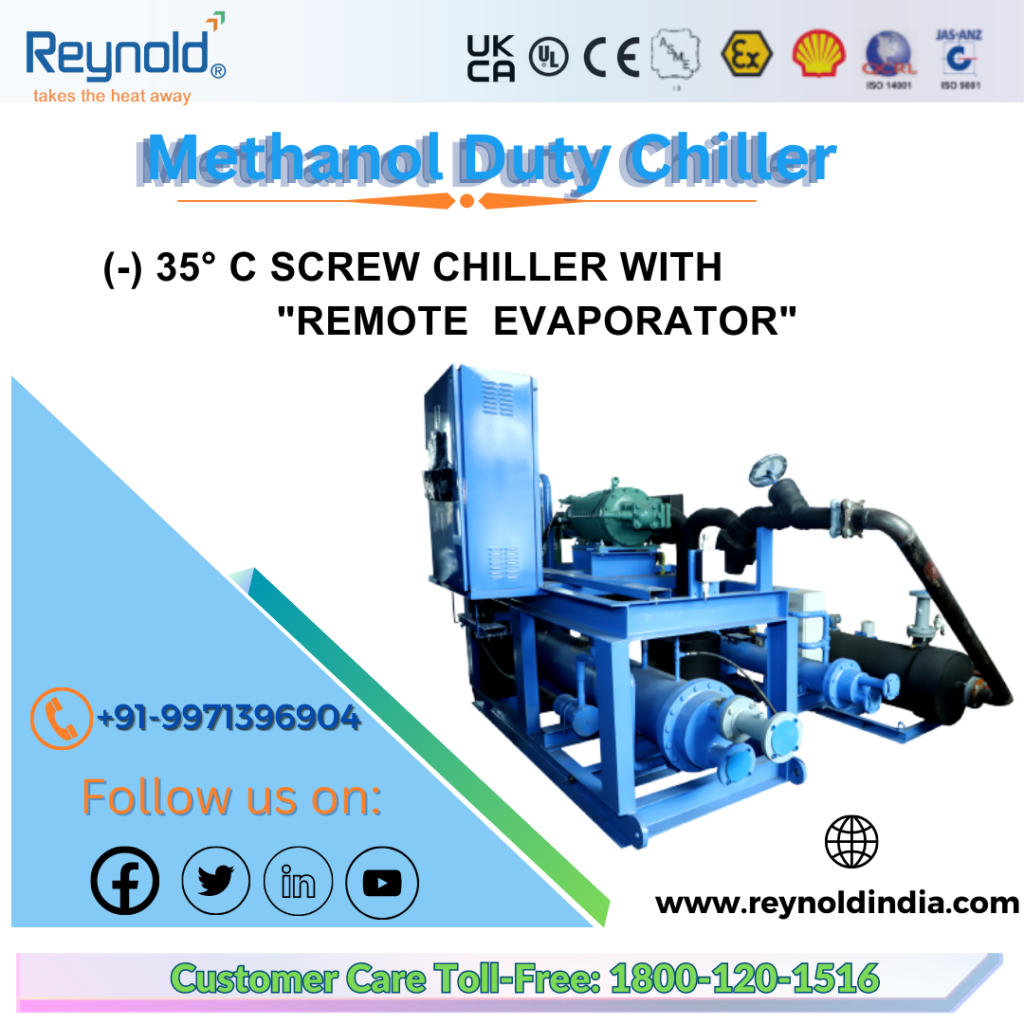A Vital Cooling Solution for Modern Industries
Introduction: In the dynamic landscape of modern industries, maintaining optimal operating temperatures is crucial for enhancing productivity, product quality, and equipment longevity. Industrial chillers have emerged as essential cooling solutions that efficiently remove excess heat, ensuring smooth operations in various sectors. In this blog, we will explore what an industrial chiller is, how it works, its applications, and the benefits it brings to industrial processes.
What is an Industrial Chiller? An industrial chiller is a specialized cooling system designed to remove heat from industrial processes and equipment. It functions by absorbing heat from process water or other fluids and dissipating it through a heat exchange process. The cooled fluid is then recirculated to maintain the desired temperature, preventing overheating and maintaining a stable environment for critical operations.

How Does an Industrial Chiller Work? Industrial chillers operate on the principles of thermodynamics and refrigeration. They typically consist of a compressor, condenser, evaporator, and expansion valve. The refrigerant circulates through these components, alternating between gaseous and liquid states to absorb and release heat efficiently. As the process fluid passes through the evaporator, it exchanges heat with the refrigerant, cooling down before being recirculated.
Applications of Industrial Chillers: Industrial chillers find versatile applications across various sectors, including:
- Manufacturing: In manufacturing processes, such as plastics, metalworking, and electronics, industrial chillers help control temperatures in molding machines, welding equipment, and semiconductor manufacturing.
- Food and Beverage: Chillers are used in the food and beverage industry to cool ingredients, maintain fermentation temperatures, and preserve food quality during processing.
- Pharmaceuticals: Pharmaceutical companies rely on chillers for precise temperature control in research laboratories, manufacturing medications, and storing temperature-sensitive drugs.
- Data Centers: Chillers are critical in cooling data centers, ensuring servers and networking equipment operate at optimal temperatures for reliable performance.
- Chemical and Petrochemical: Industries dealing with chemical processes and petrochemical refining benefit from industrial chillers for cooling chemical reactors and controlling exothermic reactions.
Benefits of Industrial Chillers: Industrial chillers offer numerous advantages, including:
- Improved Efficiency: By maintaining consistent temperatures, industrial chillers enhance the efficiency and productivity of industrial processes.
- Product Quality: Precise temperature control helps preserve product quality and reduces the likelihood of defects during manufacturing.
- Energy Savings: Many modern industrial chillers are designed to be energy-efficient, leading to reduced operating costs and environmental impact.
- Equipment Protection: Cooling equipment and machinery prevents overheating, extending their lifespan and reducing the need for frequent repairs.
- Process Stability: Industrial chillers ensure process stability by minimizing temperature fluctuations, resulting in consistent output and reduced waste.
Conclusion: Industrial chillers have become indispensable in modern industrial settings, providing reliable and efficient cooling solutions across diverse sectors. As industries continue to evolve, the demand for precise temperature control and energy-efficient cooling will drive further advancements in chiller technology, contributing to enhanced productivity and sustainability in the industrial landscape.


